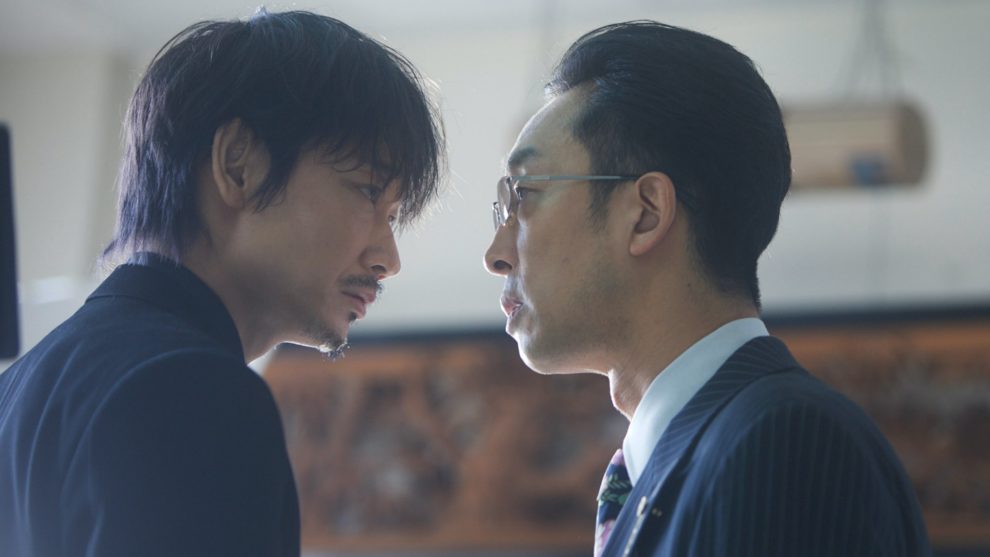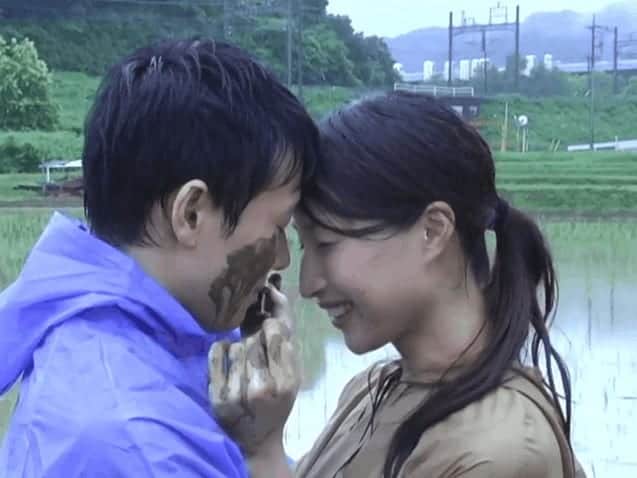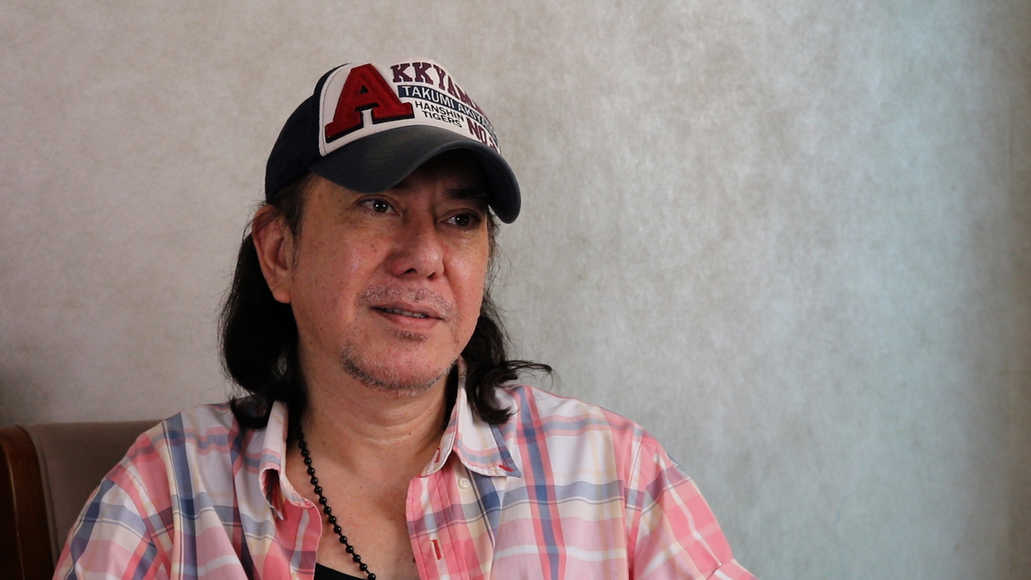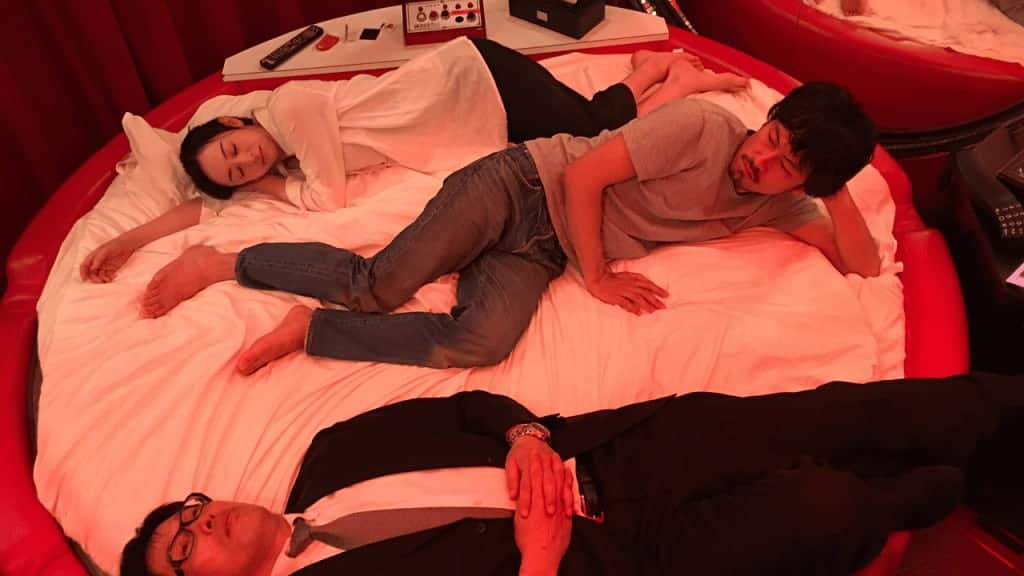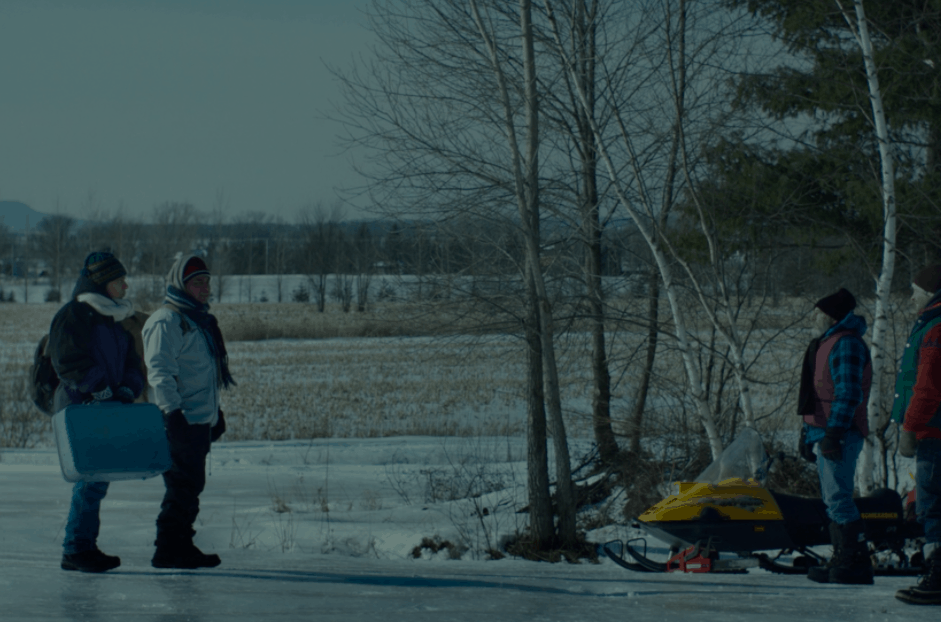Despite being active since 2013, Michihito Fujii has only managed to become more widely known in 2019, when two of his movies, “Night and Day” and “The Journalist” garnered much attention, both in Japan and internationally. “A Family” follows in the same footsteps of the two, both stylistically and contextually, with the second aspect focusing on an effort to present themes that are usually depicted in genre fashion, with realism. This time he deals with the world of yakuza, and particularly the concept of family within these organizations, which, supposedly, is one of the main values of the underworld.
“A Family” is screening at Toronto Japanese Film Festival

The story coves two decades in the life of Kenji Yamamoto, starting in 1999, when he has just lost his yakuza father, becoming an orphan, something that has turned him into an insolent punk, who seems to fear and respect of nothing, and is always eager to his use his fists to channel his anger. Kenji spends most of his time roaming around with his friends, while frequenting a small restaurant run by Aiko Kimura, a yakuza widow, who also has her young son, Tsubasa, sitting around the shop. One night, a fight among the yakuza regulars breaks out, and Kenji ends up protecting Hiroshi Shibasaki, the boss of the Shibasaki-gumi gang. The man takes an interest in the youth, but Kenji does not want to join the yakuza and is quite disrespectful once more. However, an incident where he is almost beaten to death by the members of another gang, and Shibasaki's understanding behaviour eventually wins him over.
Fast forward ten years later, Kenji is one of the top henchmen in the Shibasaki-gumi while considering Shibasaki as a father, even willing to sacrifice himself for him. Furthermore, and after a nod from his mentor, he romances Yuka Kudo, a hostess who stands up to him, thus winning his respect. Trouble is brewing in the area however, and an attack against his boss brings Kenji on the path of revenge, and eventually, prison. More than 10 years later, Kenji gets out, but finds out that everything has changed, since the anti-crime law essentially has deemed the yakuza way of life, impossible. Kenji tries to adapt, while he finds out that Tsubasa has turned into something of a millennial version of him. Kazuhiko Osako, a rather shady cop who has been always dealing with yakuza, emerges as the true villain.
Michihito Fujii's effort to present the yakuza world in a realistic fashion that essentially deems the movie a family drama as much as a crime thriller is mixed in its result. The main flaw derives from an idealization of the concept of family within the yakuza ranks, in this case, between Kenji and Shibasaki, and Kenji and his friends, mainly Kohei and Ryuta, and eventually, between Kenji and Tsutomu, one of Hiroshi's main men. This sense of brotherhood in the underworld has long since been deconstructed as a total lie, starting with Kinji Fukasaku's yakuza papers in the 70s, and continuing with a number of more recent titles dealing with the lives of lowly yakuza, as “Under the Open the Sky”, for example. The depiction here, on the contrary, is romanticized, to a point at least, which definitely detracts from the overall aesthetics of the movie and its realism.
The rest of the story, however, moves in the exact opposite path, highlighting the blights of yakuza life to the highest degree, particularly in the last arc. That the all-powerful leaders of the organization are now sick old men barely making a living by fishing in the midnight or working in secret in jobs that border on being illegal, highlights the dramatic turn their lives have taken rather eloquently. That the anti-yakuza laws state that, after they officially declare that they are no longer members of an organization, cannot work for five years is also presented in all its glory, along with the prejudice society shows these people, who are margninalized in the worst way, essentially as a punishment for their previous life. Lastly, that their past even impacts their friends and families, including the later generations, essentially stating that the history will repeat itself, even in completely different terms, emerges as one of the most dramatic, as much as realistic comment, regarding “the life”, even if in the end, this aspect borders on the melodramatic. The role police officer Kazuhiko plays throughout the story, also makes a comment about the role of the law, which was quite different during the yakuza-dominant era and now, during their fall, but remains rather despicable. Ryo Iwamatsu realizes this element in the best fashion as Kazuhiko in a truly memorable performance.
Go Ayano is great as Kenji, with his transformation being one of the best parts of the narrative. Kenji starts as a wild wolf, becomes an obedient dog, and ends up as an old stray one, watching another young wolf, Tsubasa, following the same path as his, as the last arc works as a process of complete disillusionment for Kenji. The way Go Ayano presents these radical changes is impressive, also due to the fact that violence continues to live inside him, even if channeled in different ways.
Talking about violence, particularly the first two parts are filled with it, with Fujii showing how much of an integral part of yakuza life it is. The plethora of action scenes are quite impressive, filled with brutal energy, with DP Keisuke Imamura making the most of its depiction, although in a fashion that is too polished sometimes. This aspect actually carries over throughout the movie, occasionally providing a relief, as in the various images of the sky and the beach and a number of shots in night clubs, but sometimes making the film feel somewhat unrealistic, although not to a point to fault the outcome significantly. The editing is also implemented rather well, with the pace being faster in the first two arcs and much slower in the last, mirroring the situation of the protagonists.
Also of note are the various secondary actors, all of which portray their characters quite fittingly, with Shinobu Terajima as Aiko, Yukiya Kitamura as Tsutomu, and Hiroshi Tachi as Hiroshi giving memorable performances as the “old guard”. Hayato Ichihara as Ryuta shows another impressive transformation, while Ryutaro Ninomiya also makes a meaningful appearance as the always smiling Kohei.
Despite some faults here and there, “A Family” emerges as an impressive portrait of yakuza life through the years, with the family drama/crime action combination working quite well, also in terms of entertainment.


